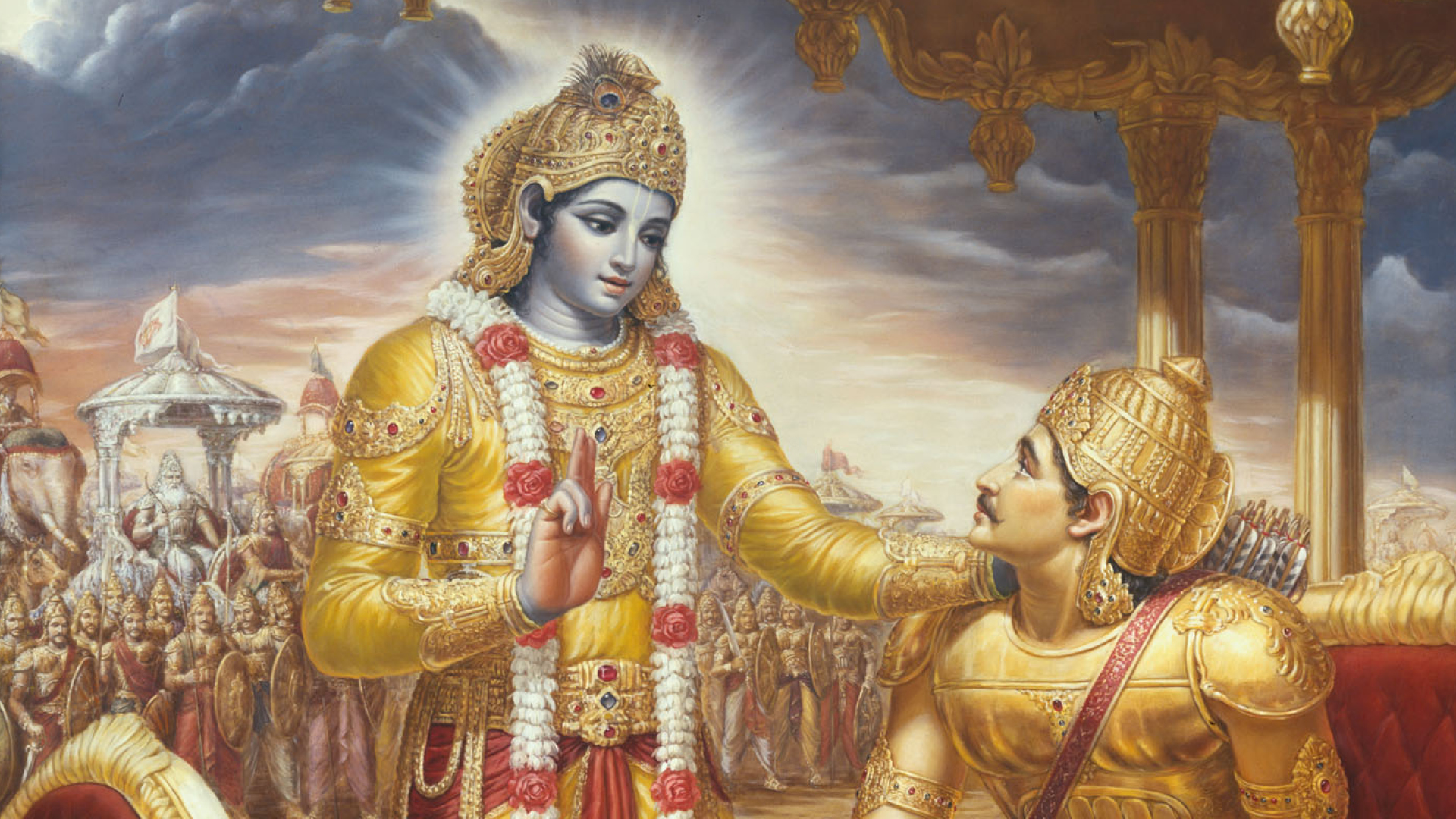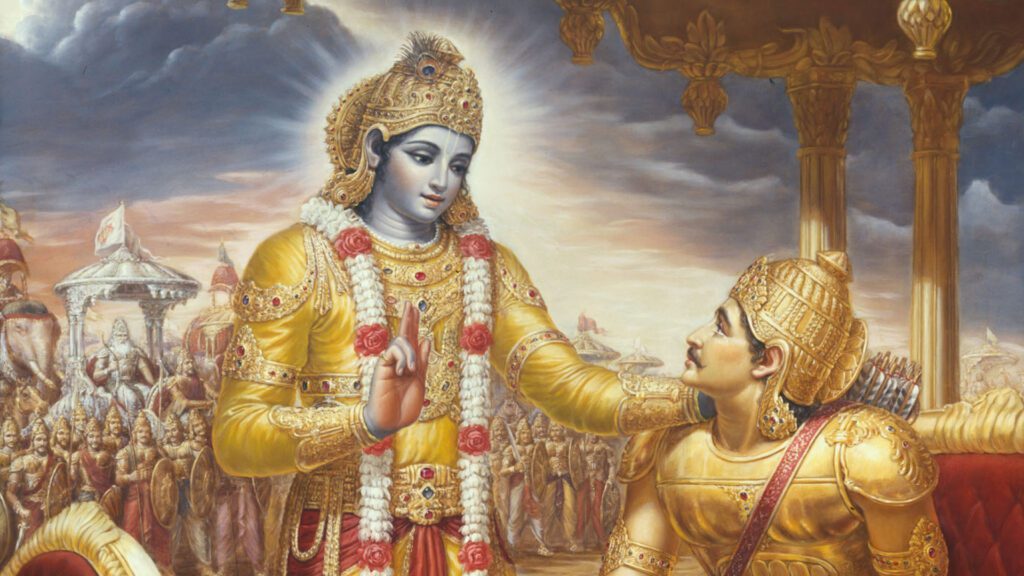
A blog post title goes right here in this spot, okay? You'll have this much room to type it out.
July 26, 2023

In the spotlight of the new Oppenheimer movie, a profound yogic treasure beckons us on a journey of timeless wisdom—the Bhagavad Gita. This sacred scripture, nestled within the epic Mahabharata, holds the essence of yoga philosophy, offering guidance as relevant today as it was thousands of years ago. As we embark on this captivating exploration, let’s delve into the origins of the Gita, its connection to the epic Mahabharata, and understand the profound teachings it bestows upon us, the modern yogis.
The Origins of the Bhagavad Gita:
The Bhagavad Gita, often referred to simply as the Gita, is an ancient Indian scripture believed to have been composed over 2,000 years ago. Written in the form of a poetic dialogue, it features a conversation between Prince Arjuna and Lord Krishna, who serves as his charioteer and divine guide. This timeless dialogue takes place on the battlefield of Kurukshetra, just before a great war is about to ensue.
The Mahabharata: Epic of Epics
The Bhagavad Gita is an integral part of the Mahabharata, one of the world’s longest epic poems. Composed by the sage Vyasa, the Mahabharata narrates the great Kurukshetra War between the Pandavas and the Kauravas, two families vying for the throne of Hastinapura. Amidst the grand tapestry of the Mahabharata’s narrative, the Gita stands out as a beacon of spiritual wisdom and ethical guidance.
Now, about that famous quote:
Step into the cosmic spectacle, where Lord Krishna reveals his universal form to Arjuna, a sight beyond human comprehension. Overwhelmed, Arjuna utters the profound words, “Now I become Death, the destroyer of worlds.” In this revelation, he comprehends the grandeur of cosmic existence and the inevitability of life’s impermanence—the eternal dance of creation and dissolution.
This quote, “Now I am become Death, the destroyer of worlds,” from the Gita, encapsulates the profound realization of the cyclical nature of life and creation. It reflects the impermanence of all things and the cosmic dance of birth and destruction. Oppenheimer, the brilliant physicist, was captivated by the Gita’s universal message as he witnessed the detonation of the first atomic bomb during the Manhattan Project. The quote resonated deeply with him, for it epitomized the immense power that humankind had harnessed, a power capable of both creation and devastation. Oppenheimer’s connection to the Gita’s timeless wisdom revealed the profound impact ancient philosophies can have on individuals facing monumental ethical dilemmas and grappling with the consequences of human ingenuity.
Teachings for Today’s Yogis:
Now, let’s uncover how the Gita’s teachings transcend time and inspire us in the modern world:
- Embrace Your Unique Journey: Just as a streaming service offers a diverse array of content, life presents an array of paths. The Gita encourages us to embrace our unique journey, to walk the path of our dharma (life’s purpose) with authenticity and determination. Let your heart guide you, dear yogis, and revel in the beauty of your individuality.
- Cultivate Equanimity in the Face of Challenges: Life’s challenges can be like unpredictable weather, but we can find our inner shelter. The Gita teaches us to cultivate equanimity, like a steady anchor in stormy waters. In the face of adversities, find your calm center, and navigate the waves of life with resilience and grace.
- Let Go and Surrender to the Flow: Just as a river flows with grace, life unfolds its divine plan. The Gita guides us to let go of the illusion of control, to surrender to the greater flow of existence. Embrace the present moment, accepting life’s impermanence, and find peace in the river of divine unfolding.
As the Bhagavad Gita speaks across the ages, it invites us to embark on a profound journey of self-discovery and spiritual wisdom. Embrace your unique journey, cultivate equanimity, and surrender to the divine flow. May the teachings of the Bhagavad Gita resonate in the tapestry of your modern lives, illuminating the path to self-realization and spiritual growth. Namaste, dear modern yogis, and may the Gita’s ancient wisdom guide your hearts and souls.
Leave a Reply Cancel reply
© Copyright Mojave Yoga Collective, All Rights Reserved | Template by Liberty Type
A Las Vegas yoga teacher training for the curious, willing + adventurous. We're serious about yoga—not so serious about ourselves.
Be the first to comment